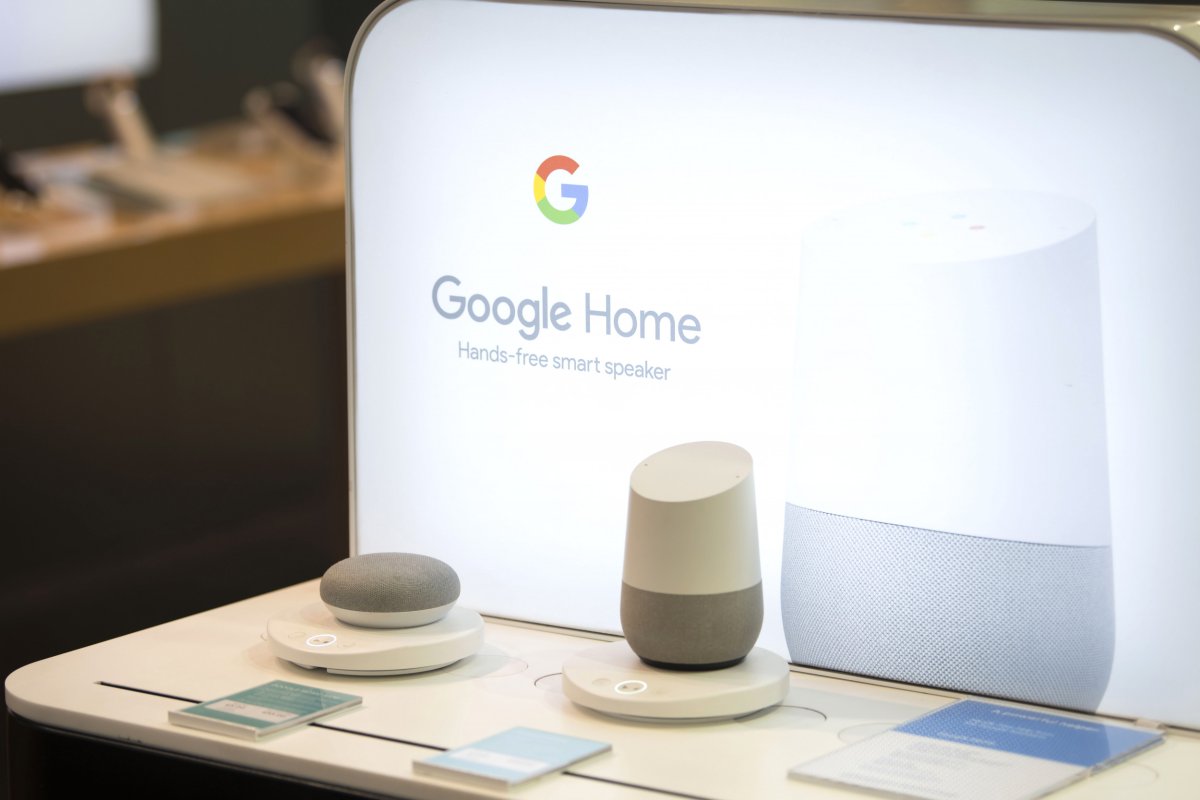In a highly anticipated decision, a judge of the United States International Trade Commission ruled in August that Google infringed five patents owned by speaker maker Sonos. The case charged Google with copying Sonos' patented technology in its Google Home smart speakers.
The decision could result in a ban on importing these Google devices.
That a tech giant would copy the intellectual property of a smaller, less powerful firm is hardly surprising—in fact, it happens all the time. What's unusual here is that Google didn't get away with it.
Over the last decade, major tech firms have been violating the IP rights of smaller companies with increasing frequency and relative impunity. This practice poses an urgent threat to the start-ups, small companies and individual inventors that fuel technological progress across our economy—as well as to the hundreds of thousands of jobs these businesses provide.
Pushing back against Big Tech's predatory practices will require a renewed effort to fortify America's patent system.
Patents serve an essential purpose in the American economy—incentivizing investment in new ideas and technologies. By promising patent holders exclusive rights to their creations for a limited time, patents ensure that inventors have a chance to reap the rewards of successful products.
But Big Tech—eager to entrench its dominance—has used its clout in Washington to systematically attack the U.S. patent system and disadvantage smaller rivals.
Legislative changes, as well as a number of troubling Supreme Court rulings, have made it more difficult to obtain, defend and enforce patents. For instance, the America Invents Act, passed by Congress in 2011, created a new review process for the patent office. This process usually adds years of delay and makes it considerably more costly to defend one's patents, and increases the risk of losing intellectual property rights—all under lower standards than applied in court.
In addition, recent Supreme Court decisions in cases like Bilski v. Kappos, Mayo Collaborative Services v. Prometheus Laboratories and Alice v. CLS Bank International created enormous uncertainty over what kinds of inventions are even eligible for a patent, and wholly excluded medical diagnostic methods, no matter how useful.

All of this has generated a windfall for America's largest tech companies. After all, if it's too difficult—or too expensive—for small operations to avail themselves of their patent rights, then Big Tech firms can help themselves to promising innovations without paying inventors or worrying about legal consequences.
That's exactly what has happened.
Sonos' case against Google is a rare instance in which the less powerful company has, so far, triumphed. If more lawsuits result in similar outcomes—and increase the financial risk for Big Tech companies—it's possible executives might think twice before violating IP rights.
For the most part, smaller firms lack the resources and expertise to defend and assert their rights in the first place. The consequences for inventors, and the U.S. economy in general, have been devastating.
As larger tech companies grow more powerful through the abuse of what have long been considered property rights in patents, it's harder for start-ups and innovative small businesses to achieve independent success. The best many can hope for is an acquisition offer from one of the tech giants at depressed prices.
The result is that a dozen or so of the biggest players in the tech industry are able to hamstring a segment of our economy that is essential to American competitiveness, job growth and technological leadership.
To date, the Big Tech lobby has justified its anti-IP campaign as a battle against "patent trolls"—a pejorative term for companies that supposedly buy up patents with the aim of filing lawsuits against tech companies that adopt similar technologies.
Let's set aside the question of why tech giants should get to decide which legal rights they do and do not need to respect. Charges of widespread "patent trolling" are mostly propaganda. The vast majority of patent infringement lawsuits are filed by innovators themselves, or by companies that purchased patents with the intent of developing them into a product or selling them to a company that will, once market conditions are ripe.
The patent system at the heart of America's economic dynamism is under attack from America's largest technology firms. From all indications, these companies' cynical strategy is working.
If we are to remain a nation that rewards risk-taking, ingenuity and entrepreneurialism—and outcompetes China to lead the world in innovation—this assault on patents must be defeated.
Paul R. Michel served on the United States Court of Appeals for the Federal Circuit for 22 years, and as its chief judge from 2004 until his retirement in 2010.
The views expressed in this article are the writer's own.
Uncommon Knowledge
Newsweek is committed to challenging conventional wisdom and finding connections in the search for common ground.
Newsweek is committed to challenging conventional wisdom and finding connections in the search for common ground.
About the writer
To read how Newsweek uses AI as a newsroom tool, Click here.








